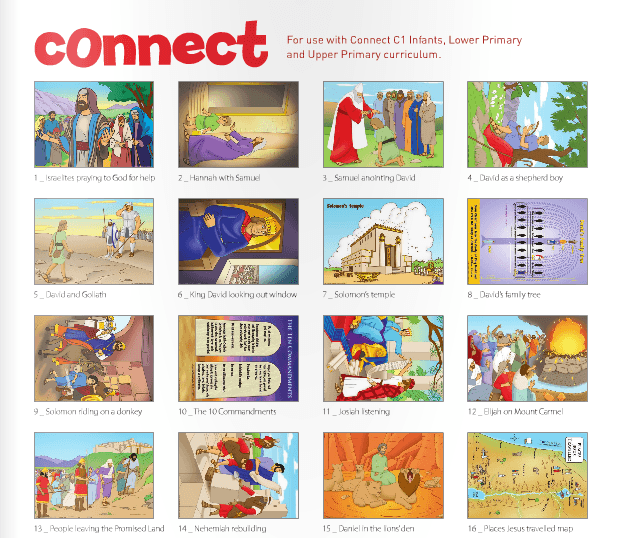Religious Instruction (RI) in Queensland’s state schools will be reviewed after a school principal raised concerns that teaching materials are proselytising students. It’s the first time a review of this nature has been called in the state.
The review, announced by the QLD Minister for Education Kate Jones today, comes after a local Brisbane principal told parents he had decided to axe religious instruction classes immediately after reviewing the materials and finding that, in his belief, they “proselytised” students.
“I am concerned content outside the guidelines of this long-standing policy may currently be being provided in state schools,” say the education minister in a statement released today. “Any materials found to be in breach of the policy will be removed from schools.”
Matthew Keong, the principal at Windsor State School in Brisbane’s north, sent a letter to parents on Friday outlining his decision to stop the program. The materials used in his school were from the ‘Connect’ program, published by Youthworks Media (a Sydney Anglican ministry).
The published aim of the Connect program is “to present the heart of God’s message of salvation in a clear and attractive manner.” One example of what Mr Keong claims is ‘proselytising’ (of over 20 examples given) is in Lesson 3 of the C1 Series for Lower Primary, with a stated aim “to help students understand that God knows what is best for us and therefore we should follow and obey him.”
“I have now completed a review of the Connect program and found that it contravenes policy that prohibits proselytising,” wrote Mr Keong to parents. “Given that the Connect program is in contravention of RI policy, I am unable to permit its continued use at Windsor State School and am obliged to suspend RI lessons effective immediately.”
The QLD Department of Education defines ‘proselytising’ as “soliciting a student for a decision to change their religious affiliation”.
A statement by Youthworks Media, also released today, says the Connect Program does not proselytise.
“Parents choose for their children to participate in SRI, have self-identified as Christian and expect their child to be taught from a Christian perspective,” reads the statement. “The issue of proselytising has received serious attention in NSW over the past few years, and we have worked closely with the NSW Department of Education to ensure our content is appropriate for the context. Our lessons are developed and regularly reviewed by trained educators and religious leaders, and we are careful to ensure the basic tenets of the Christian faith are taught in an age-appropriate and sensitive manner.”
Youthworks and the Christian Education Publications that publishes the Connect program say that the decision to review the ‘Connect’ curriculum is a “local matter between Windsor State School and Education Queensland.”
“We are in active communication with Education Queensland, and have offered our full cooperation and support.”
Karen Grenning is a QLD religious instruction coordinator and a spokesperson for religious instruction in the state. She says there are over 1200 state primary schools in QLD with an opt-in religious instruction program and there have been “very few complaints about the program”. Over half of those schools “if not the majority of them” are using the Connect materials, says Ms Grenning. She says the issue is a “storm in a tea cup” and believes the Windsor State School principal has made a mistake in his interpretation, which will be overturned on review.
However, she told Eternity that she believes that Windsor State School is being used a test case for a secular movement intent on getting rid of religious instruction, which includes Queensland Parents of Secular State Schools.
Clement Fryer, an associate pastor at Cornerstone Church and a member of the Windsor State School Christian RI Cooperative wrote a letter to the Department of Education in response, which Eternity has seen, informing the department that legal opinion has been sought on Mr Keong’s decision to terminate RI at the school. The letter suggests that the Principal has acted on an “incorrect understanding of the prohibition on proselytising”.
The memorandum of advice, offered by Brisbane barrister Stewart Webster, says the only time “proselytising” is mentioned in the Education Department RI policy is in regards to “cooperative arrangements”, where religious leaders of two or more faith groups agree to work together to provide religious instruction as joint faith groups. Departmental policy says religious instructors “are not to proselytise in a cooperative arrangement.” Mr Webster argues that in the context of a cooperative arrangement (Windsor State School has a cooperative arrangement between seven Christian churches which operate the program, for example), the prohibition on “proselytisation” is to prevent a teacher of one denomination soliciting a change in a student’s religious affiliation from one denomination to another.
“The prohibition is not directed to preventing a person delivering religious instruction … from informing students about Christian teachings and encouraging them to consider what it means to be a Christian (untied to any particular Christian denomination),” reads Mr Webster’s memorandum of advice.
Ms Grenning says she expects that the review will reinstate religious instruction at Windsor State School and the curriculum to continue to be used.
Religious instruction was taken out of school time in Victoria in 2015 after several reviews, and in NSW similar programs are also under Department of Education review.
Email This Story
Why not send this to a friend?

